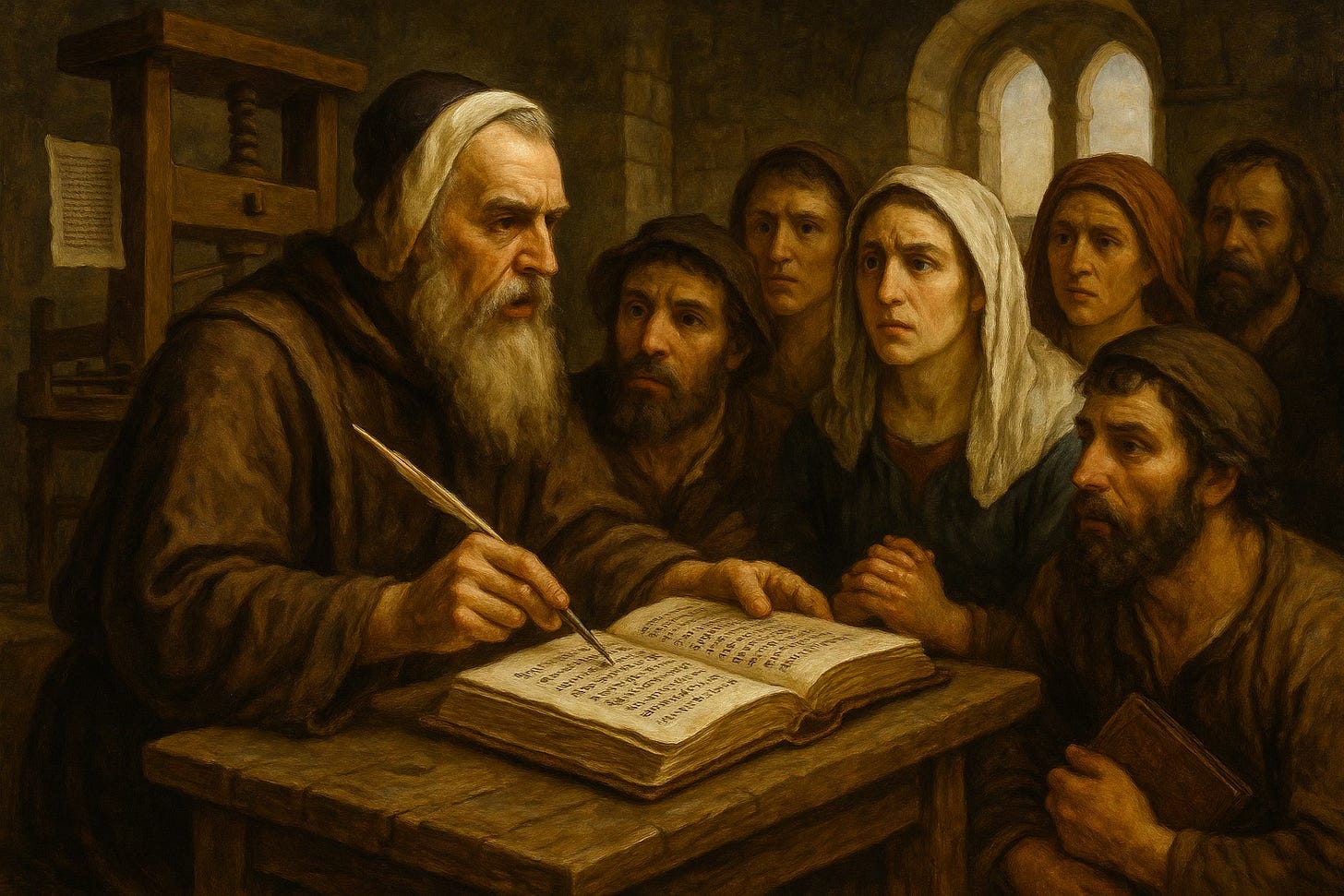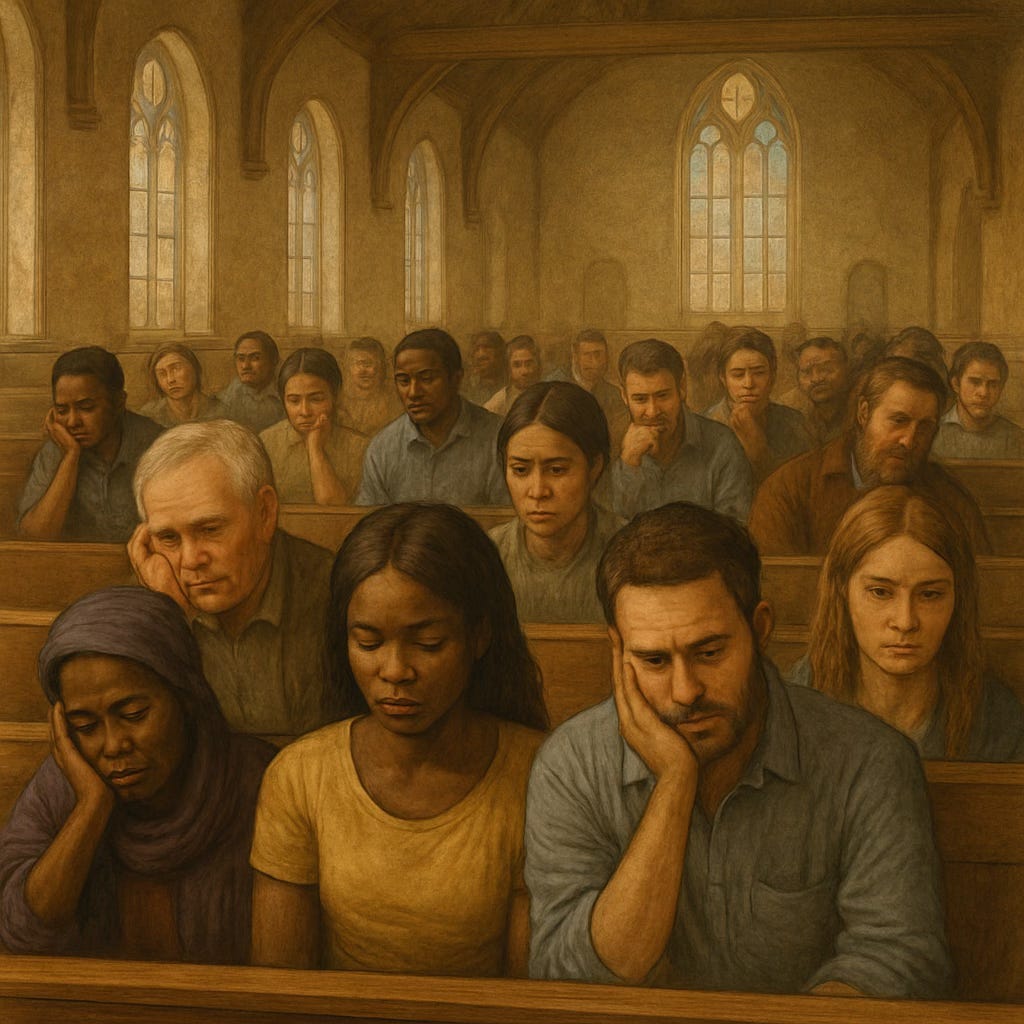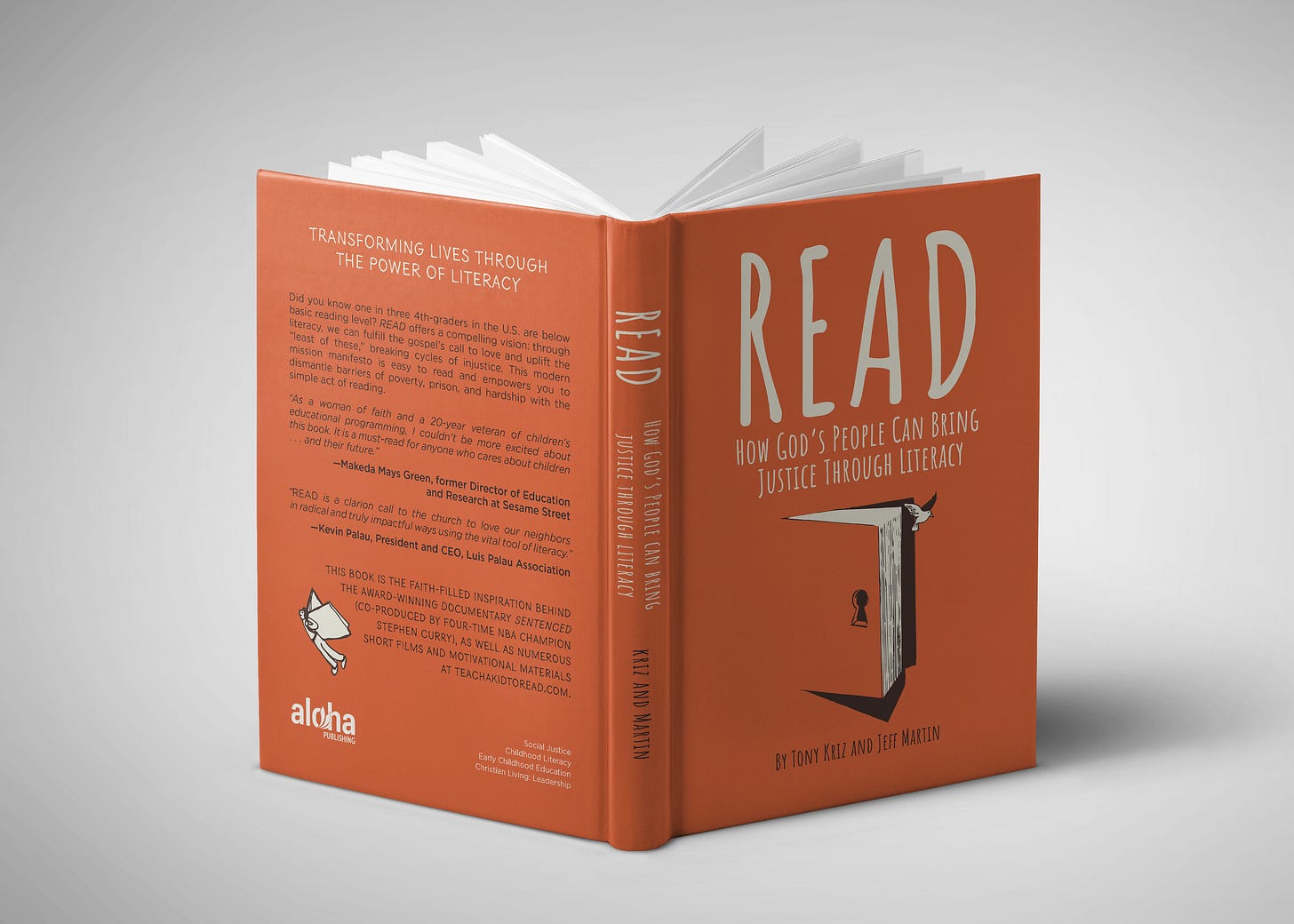When did helping the masses to read stop being a part of the mission of the Christian church?
I don’t know when or why it happened… but the repercussions are impossible to ignore. In the United States, literacy rates among adults peaked in the 1970’s (watch “How We Got Here”).
Today in the United States, it is reported that more than one in four adults cannot read above a basic level, the level necessary to complete a job application or participate in citizenry (not to mention read the Bible.) This is because 40% of fourth-graders read well below standards. And those adults who can’t read are too often populating our welfare lines, addiction programs, exploitation statistics and prison cells (Matthew 25:34-36).
Jesus’ public ministry began with the words “He found the place where it is written” (Luke 4:17). We have always been people of the Book (and of books). “It is written…” is a clarion call of scripture and the first churches met in synagogue-schools.
Out of this reading-mandate, the early church insisted that the scriptures and apostolic documents be written in the commoners language (Koine Greek). The Protestant Reformation sprung from that same insistence. The Tyndale Bible, the Book of Common Prayer, Luther’s Bible and the Gutenberg Press were all created to bring literate understanding to the common person (away from the ivory towers and religious citadels).
In the ninth century, missions, like Cyril and Methodius, created what became the Cyrillic alphabet and forged the commoners languages of Eastern Europe. In more recent times, one Christian organization, called Wycliffe, exists to “develop alphabets, help preliterate people learn to read and write… by developing written languages….” They have been involved in language creation and translation in 2500 languages, helping provide the Bible and ongoing literacy programs.
In American history, most every small town began with a church that also served as a school at its center. Within the “parish model” of churches, even in big cities, every neighborhood had a parish church including a parish school responsible to care for EVERY child.
Most of the great American universities began as Christian missions and many still have a chapel at the center of their campuses.
Sunday School was originally created as the only place for impoverished peoples to learn to read.
And yet, here we are.
40% of fourth-graders are being sentenced to a life in which they had no vote, in part because no one came along, samaritan-saw them and helped them read.
Today in the United States much of the fabric of public life is breaking down. However, in every neighborhood there still exists two institutions:
The local church and the elementary school.
Every Sunday, church-goers are teed up to “Love Thy Neighbor” and “Love the stranger” and yet feel defeated because they don’t know where to begin. And, like the parish churches, the village churches and the upper-room churches of old, we have a sacred calling to care for the forgotten, the tossed-aside and the “least of these” all around us. Let’s activate our faith.
If every under-resourced school had a church adopt it… if that church sent a reading-buddy for one hour a week for each struggling kid… only Heaven knows the transformation that would occur. We might even change a nation.
Reading has always been a part of the Church’s mission, let’s make it so again.
Teach a Child to Read, Give a Child a Chance
To learn more, go to childrensliteracyproject.org or buy the book, READ:How God’s People Can Bring Justice Through Literacy.









Tony, this moved me deeply. While I no longer walk the Christian path, I continue to hold immense respect for those who live the teachings rather than just reciting them. Your call to reclaim literacy as sacred work is not only timely; it’s vital. I’m especially struck by how you connect the decline in literacy to systemic neglect and spiritual forgetting. The idea that “He found the place where it is written” is a mission, not just a moment, is something I’ll be sitting with for a while.
Thank you for reframing literacy as love in action. As someone who works at the intersection of trust, systems, and inclusion, I see so many broken places in our public institutions. But churches and schools remain anchors in communities, and your invitation for partnership between the two is beautiful, practical, and theologically grounded.
If we want a more just world, we can start with reading and reading together.